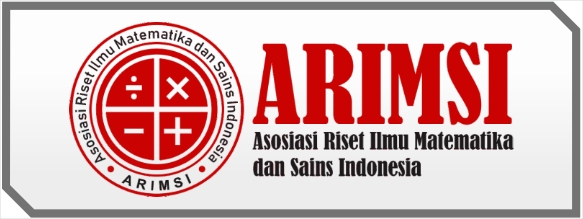Peningkatan Pemberdayaan Masyarakat melalui CSR PLN Mencapai Kesadaran Lingkungan Sejak Dini
DOI:
https://doi.org/10.59581/konstanta.v2i4.4213Keywords:
PLN CSR, Empowerment, River School, Community, EnvironmentAbstract
Improving community welfare is the main goal, of course, and one of the main goals of CSR. Companies can help and improve communities in social, cultural, economic, and physical areas by carrying out corporate social responsibility. By doing so, they can make the community feel helped in improving their welfare If someone offers them help, they tend to see it positively because it is evidence of gratitude and empathy shown. The use of appropriate theories to study community empowerment and capacity building of the River School, including community empowerment through CSR programs, River Schools as a model of environmental education, the role of PLN CSR in environmental education at River Schools, early environmental awareness through CSR and River Schools, the impact of CSR programs on community empowerment and independence. This study uses a qualitative approach with a case study of community empowerment through PLN CSR to explore early environmental awareness The location of this research was carried out in Gunung Anyar Tambak Village Rt.01 Rw.01 Surabaya, which is an area used by Bank Sampah by PT. PLN (Persero). The PLN CSR program involving various parties in environmental education has a positive impact on shaping the mindset of the community who are more concerned about environmental sustainability. Awareness built early on, especially in children and adolescents, is expected to produce a generation that is more responsive to environmental issues. Counseling involving schools in this sub-district has proven effective in building a deeper understanding, which can then be passed on to their families. Therefore, it is important for PLN to continue to assist the community, provide adequate facilities and infrastructure, and provide incentives or awards for those who succeed in protecting the environment and managing resources wisely.
References
Ambadar, J. (2008). CSR dalam praktik di Indonesia. Jakarta: PT Elex Media Komputindo.
Ardiana, M. (2018). Pendidikan lingkungan sejak dini: Dampak terhadap pola pikir dan perilaku anak. Jurnal Pendidikan Lingkungan, 14(2), 45–53.
Carroll, A. B. (1999). Corporate social responsibility: Evolution of a definitional construct. Business & Society, 38(3), 268–295.
Cohen, Uphoff. (1977). Rural development: Concept and measures for project design, implementation, and evaluation. New York: Cornel University.
Dewani, A. P. (2009). Kebijakan, implementasi, dan komunikasi CSR PT Indocement Tunggal Prakarsa Tbk [Skripsi]. Bogor: Institut Pertanian Bogor.
Febriana, Y. D. (2008). Partisipasi masyarakat dalam program corporate social responsibility “Kampung Siaga Indosat” (Studi Kasus: RW 04, Kelurahan Manggarai, Kecamatan Tebet, Jakarta Selatan) [Skripsi]. Bogor: Institut Pertanian Bogor.
Hadi, N. (2011). Corporate social responsibility. Yogyakarta: Graha Ilmu.
Ismail, M., Abdullah, S., & Sulaiman, S. (2016). Community empowerment through CSR programs: A case study of XYZ company. Journal of Community Development, 7(1), 33–45.
Prasetyo, A. (2019). Sekolah sungai: Inovasi pendidikan lingkungan berbasis komunitas. Jurnal Inovasi Pendidikan, 10(1), 25–31.
Rahmawati, T., Supriyanto, & Mulyadi, R. (2020). Peran CSR dalam peningkatan kesadaran lingkungan melalui program pendidikan di sekolah sungai. Jurnal CSR dan Lingkungan, 8(3), 112–120.
Sajogyo. (1998). Menuju kemandirian masyarakat. Prisma, 1(XVII). Jakarta: PT Pustaka LP3ES Indonesia.
Santosa, D. (2021). Efektivitas pendidikan lingkungan berbasis sungai dalam meningkatkan kesadaran anak-anak. Jurnal Pendidikan Lingkungan Hidup, 13(1), 52–59.
Silaen, S. B. J. (1998). Partisipasi anggota kelompok masyarakat desa tertinggal pada kegiatan proyek Inpres Desa Tertinggal (IDT) [Skripsi]. Bogor: Departemen Ilmu-Ilmu Sosial Ekonomi Pertanian, Fakultas Pertanian IPB.
Situmorang, R. (2017). Pendidikan lingkungan hidup melalui sekolah sungai. Jurnal Pendidikan dan Lingkungan, 12(2), 74–80.
Sugiyono. (2010). Metode penelitian kuantitatif kualitatif dan R&D. Bandung: Alfabeta.
Suharto, E. (2005). CSR untuk kesejahteraan sosial. Bandung: PT Refika Aditama.
Tamarli. (1994). Partisipasi petani dalam penyuluhan dan penerapan program Supra Insus [Tesis]. Bogor: Program Pascasarjana IPB.
Widodo, S. (2022). Pemberdayaan masyarakat melalui CSR di bidang lingkungan: Studi kasus di Indonesia. Jurnal Sosial dan Ekonomi, 15(4), 101–118.
Downloads
Published
How to Cite
Issue
Section
License
Copyright (c) 2024 Konstanta : Jurnal Matematika dan Ilmu Pengetahuan Alam

This work is licensed under a Creative Commons Attribution-ShareAlike 4.0 International License.













